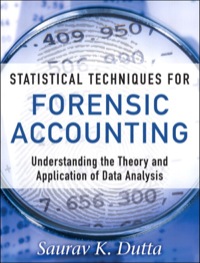



Exercise 11-4 (Algo) Special Order Decision (LO11-4) Imperial Jewelers manufactures and sells a gold bracelet for $406.00. The company's accounting system says that the unit product cost for this bracelet is $268.00 as shown below: Direct materials Direct labor Manufacturing overhead Unit product cost $ 149 82 37 $ 268 The members of a wedding party have approached Imperial Jewelers about buying 20 of these gold bracelets for the discounted price of $366.00 each. The members of the wedding party would like special filigree applied to the bracelets that would increase the direct materials cost per bracelet by $5. Imperial Jewelers would also have to buy a special tool for $458 to apply the filigree to the bracelets. The special tool would have no other use once the special order is completed. To analyze this special order opportunity, Imperial Jewelers has determined that most of its manufacturing overhead is fixed and unaffected by variations in how much jewelry is produced in any given period. However, $6.00 of the overhead is variable with respect to the number of bracelets produced. The company also believes that accepting this order would have no effect on its ability to produce and sell jewelry to other customers. Furthermore, the company could fulfill the wedding party's order using its existing manufacturing capacity. Required: 1. What is the financial advantage (disadvantage) of accepting the special order from the wedding party? 2. Should the company accept the special order? Complete this question by entering your answers in the tabs below. Required 1 Required 2 What is the financial advantage (disadvantage) of accepting the special order from the wedding party? Required 1 Required 2 > Required information The Foundational 15 (Algo) (LO14-2, LO14-3, LO14-4, LO14-5, LO14-6] [The following information applies to the questions displayed below.) Markus Company's common stock sold for $6.00 per share at the end of this year. The company paid a common stock dividend of $0.96 per share this year. It also provided the following data excerpts from this year's financial statements: Cash Accounts receivable Inventory Current assets Total assets Current liabilities Total liabilities Common stock, $1 par value Total stockholders' equity Total liabilities and stockholders' equity Ending Balance $ 54,000 $ 102,000 $ 82,000 $ 238,000 $ 900,000 $ 93,000 Beginning Balance $ 48,200 $ 73,700 $ 102,000 $ 223,900 $ 998,000 $ 103,500 $ 199,000 $ 178,000 $ 800,000 $ 998,000 $ 220,000 $ 178,000 $ 680,000 $ 900,000 Sales (all on account) Cost of goods sold Gross margin Net operating income Interest expense Net income This Year $ 1,210,000 $ 701,800 $ 508, 200 $ 378,000 $ 18,000 $ 252,000 Foundational 14-9 (Algo) 9. What is the accounts receivable turnover and the average collection period? (Use 365 days in a year. Round your intermediate and final answers to 2 decimal places.) Accounts receivable turnover Average collection period days Required information The Foundational 15 (Algo) (LO14-2, LO14-3, LO14-4, LO14-5, LO14-6] [The following information applies to the questions displayed below.) Markus Company's common stock sold for $6.00 per share at the end of this year. The company paid a common stock dividend of $0.96 per share this year. It also provided the following data excerpts from this year's financial statements: Cash Accounts receivable Inventory Current assets metal assets Current liabilities Total liabilities Common stock, $1 par value Total stockholders' equity Total liabilities and stockholders' equity Ending Balance $ 54,000 $ 102,000 $ 82,000 $ 238,000 $ 900,000 $ 93,000 $ 220,000 $ 178,000 $ 680,000 $ 900,000 Beginning Balance $ 48,200 $ 73, 700 $ 102,000 $ 223,900 $ 998,000 $ 103,500 $ 198,000 $ 178,000 $ 800,000 $ 998,000 Sales (all on account) Cost of goods sold Gross margin Net operating income Interest expense Net income This Year $ 1,210,000 $ 701,800 $ 508,200 $ 378,000 $ 18,000 $ 252,000 Foundational 14-10 (Algo) 10. What is the inventory turnover and the average sale period? (Use 365 days in a year. Round your intermediate and final answers to 2 decimal places.) Inventory turnover Average sale period days Required information The Foundational 15 (Algo) (LO14-2, LO14-3, LO14-4, LO14-5, LO14-6) [The following information applies to the questions displayed below.] Markus Company's common stock sold for $6.00 per share at the end of this year. The company paid a common stock dividend of $0.96 per share this year. It also provided the following data excerpts from this year's financial statements: Beginning Balance $ 48,200 $ 73,700 $ 102,000 Cash Accounts receivable Inventory Current assets Total assets Current liabilities Total liabilities Common stock, $i par value Total stockholders' equity Total liabilities and stockholders' equity Ending Balance $ 54,000 $ 102,000 $ 82,000 $ 238,000 $ 900,000 600 $ 93,000 021 $ 220,000 $ 178,000 $ 680,000 $ 900,000 $ 223,900 100 $ 998,000 10. $ 103,500 $ 198,000 $ 178,000 $ 800,000 $ 998,000 Sales (all on account) Cost of goods sold Gross margin Net operating income Interest expense Net income This Year $ 1,210,000 $ 701,800 $ 508,200 $ 378,000 $ 18,000 $ 252,000 Foundational 14-11 (Algo) 11. What is the company's operating cycle? (Use 365 days in a year. Round your intermediate and final answer to 2 decimal places.) Operating cycle days










